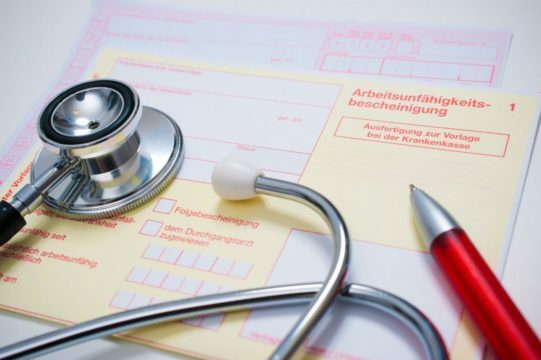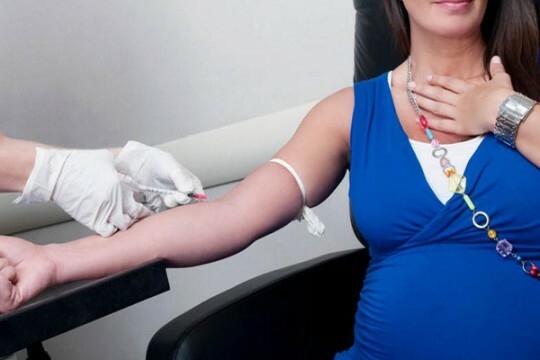Insulin is one of the most important hormones produced in the human body. He is responsible for the normal operation of many systems and organs, but his main task is to monitor the level of glucose in the blood of a person. If this level is higher or lower than normal, metabolic processes in the body are violated, and if you do not pay attention to the violation of this ratio in time, severe diseases can develop.
Necessity and norms of insulin

All processes occurring in the human body, one way or another "tied" on insulin. Without this hormone, produced by the pancreas, nutrients that enter the body with food can not be split. If there is a malfunction in the pancreas or other problems, the energy metabolism is disrupted, which is most detrimental to health.
In a healthy person, the level of insulin in the norm ranges from 3 to 25 units, in children the upper limit is slightly lower - 20 units. In elderly people the normal upper limit is not higher than 35 units, such indicators can be after 60 years. All this is normal. And everything that is higher than normal indicators is an occasion for immediate treatment to doctors, since increased insulin levels in the blood are an alarm bell, informing that the well-coordinated work of all systems and organs of man has caused a serious malfunction.
The greatest alarm should be caused by high insulin levels with normal, normal blood sugar. By the way, doctors strongly recommend to keep a glucometer at home, with which you can always measure the level of both sugar and insulin without going to a medical facility.
The most objective picture of blood sugar can be obtained if the level is measured every 2-2.5 hours, but so that at least five measurements per day are obtained. But not everyone has such an opportunity, so it's advisable to check your blood for sugar, at least right after waking up, in the morning, and before going to bed.
Symptoms of
A significant increase in insulin levels in the blood called hypoglycemia. Symptoms of this pathological condition:
- depression,
- depression,
- memory and memory loss,
- extremely difficult concentration of attention.

With progressive hypoglycemia, the main symptoms very quickly develop:
- chronic fatigue,
- a fast set of excess weight.
In addition, an increased level of insulin directly affects the state of blood vessels, triggering the occurrence of hypertension, and if you do not pay attention to all this set of symptoms, then non-interference in the situation can lead to more serious circulatory disturbances in which a person can overtake:
- violation of normal sleep,
- increased sebum secretion,
- renal failure,
- gangrene of the lower extremities.
Women usually notice these changes more often, as they are beginning to worry about the transformations that occur with them: first, the overweight, which at any age is perceived as an undesirable phenomenon, and secondly, the increased fat content of the skin. The latter phenomenon directly changes the appearance: the skin not only acquires a characteristic fatty shine, but there are multiple acne, and hair is quickly "salted".
Reasons for
We will talk about it from the very beginning: always, under any circumstances, high insulin is not normal. But only a doctor of the appropriate profile can determine with a high degree of probability which pathology can be discussed, and how it is possible and necessary to fight it.

Based on the root cause of this phenomenon, we can talk about:
- primary hyperinsulinism,
- secondary hyperinsulinism.
Primary hyperinsulinism is an increased level of insulin with a lowered level of sugar in the blood, that is, it is the primary form of pathology development. Such hyperinsulinism is also called pancreatic, as it develops against the background of a disturbance in the production of the hormone-antagonist insulin, which is called glucagon( hypo-secretion of glucagon).Both these hormones are produced in the pancreas, in the so-called islets of Langerhans. If there is a failure in the production of glucagon in the body, there is an excess of insulin.
Elevated or high levels of insulin in the blood at a normal level of sugar may indicate the following violations:
- the occurrence of neoplasms( benign or malignant tumors) in the body of the pancreas,
- a decrease in glucagon production.
Secondary hyperinsulinism is also an increase in insulin levels at a normal level of sugar. In this type of hyperinsulinism, the central nervous system is disrupted, and in addition, excessive production is observed:
- adenocorticotropic hormone( corticotropin),
- growth hormone, or growth hormone( both these hormones are produced by the pituitary gland),
- hormones produced by the adrenal cortex( glucocorticoids).

The cause of this phenomenon can be multiple factors, both external and internal, among which:
- liver failure or liver function disorder,
- carbohydrate metabolism disorder,
- pathological changes in the anterior part of the brain,
- occurrence in the abdominal region of tumors,
- development in the adrenal glandsmalignant neoplasms.
What you need to do
First of all, for proper treatment you need to find out the cause of this pathology. Without clarifying the cause, one can not begin treatment, since it can not be effective. A separate symptomatic treatment, especially long-term( the use of antihypertensive drugs to lower blood pressure, analgesics for headaches, and so on), can "lubricate" the clinical picture and postpone the visit to the doctor. And in this situation, the sooner you turn, the more likely the outcome will be.
Only thorough and comprehensive examination can reveal the cause of hyperinsulinism. But often patients enter a hospital with hyperinsulinism already in acute form, when the patient needs to inject glucagon and adrenaline to normalize the condition. But even if a person is hospitalized before the disease worsens, it is often necessary to do without a dropper with glucose, since high insulin sooner or later will lead to a decrease in blood sugar, a phenomenon called hypoglycemia. Symptoms of this condition:
- increased sweating,
- tachycardia,
- increased fatigue and weakness,
- pallor of the skin.
In this case, the patient is constantly experiencing a feeling of hunger. With a sharp decrease in sugar, loss of consciousness is possible, if you do not bring the sugar back to normal - a hypoglycemic coma.

Often the question arises: Is it possible to lower the level of insulin at home?
Yes, of course, you can. But reducing insulin levels at home is not synonymous with self-treatment without referring to specialists. It is possible to be treated for hyperinsulinism not in a hospital, but at home, but only after the doctor, who has been visited at the reception, will completely paint and explain to him the scheme of treatment and will write out all the medicines necessary for this. But since the treatment is complex, the list of medical measures can also include those for which it is necessary to visit medical facilities: for example, when prescribing physiotherapy or manual therapy, acupuncture, acupuncture, etc. Droppers, too, not every patient can put himself at home, so in no case can not ignore the polyclinics, or even hospitals.
If we talk about home treatment, doctors emphasize: the main thing is self-control. And this concerns not only a mandatory five-fold measurement of the level of insulin, but also some other things. Sometimes, in order to maintain health, it is necessary to step on the throat of your "I" and your desires( but more honestly call them human weaknesses).It's hard to force yourself to do what you do not do, and give up what you want so much. And after all to it two moments of house treatment are reduced:
- physical activities,
- preventive diet.
Body weight should not be raised in any case. To do this, you must follow a diet that can be very strict. If a person does not feel enough willpower in himself - it is better that one of his relatives watches his food.
The diet with increased insulin should be based on fractional nutrition - the patient should eat at least five times a day, while portions of food should be small. Carbohydrates should be reduced to 150 g per day. If a person experiences moral discomfort from certain food restrictions, one should pay attention to the blood test results: as the doctor's appointments are scrupulously performed, the insulin levels in the blood will return to normal. And when the patient will see with his own eyes that he is getting healthier, this will positively affect his condition.

But except for psychological moments, there will be a clear and undoubted objective improvement in the state. But in any case it will be necessary to periodically visit the doctor for preventive examination and several times a year to do a blood test.
In addition, you need to continue to follow the diet and try to lead a healthy lifestyle. What is included in this concept? The list is not so great:
- to follow the weight, not to overeat,
- to do morning exercises,
- before going to sleep at least a short walk in the fresh air,
- try to abandon bad habits( smoking, alcohol).
Having discovered the disease in time and coping with it, it is necessary to prevent the occurrence of relapses.



